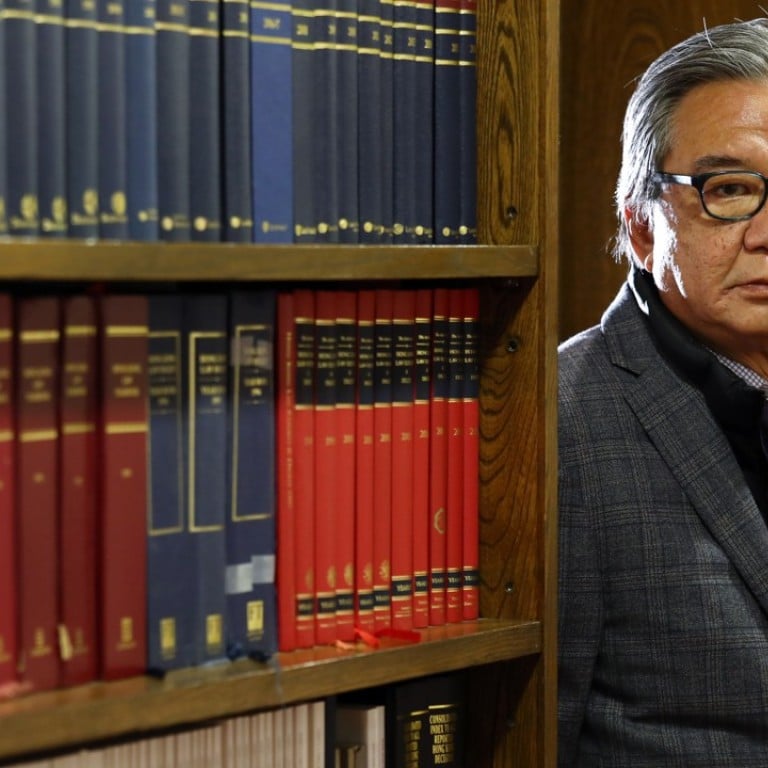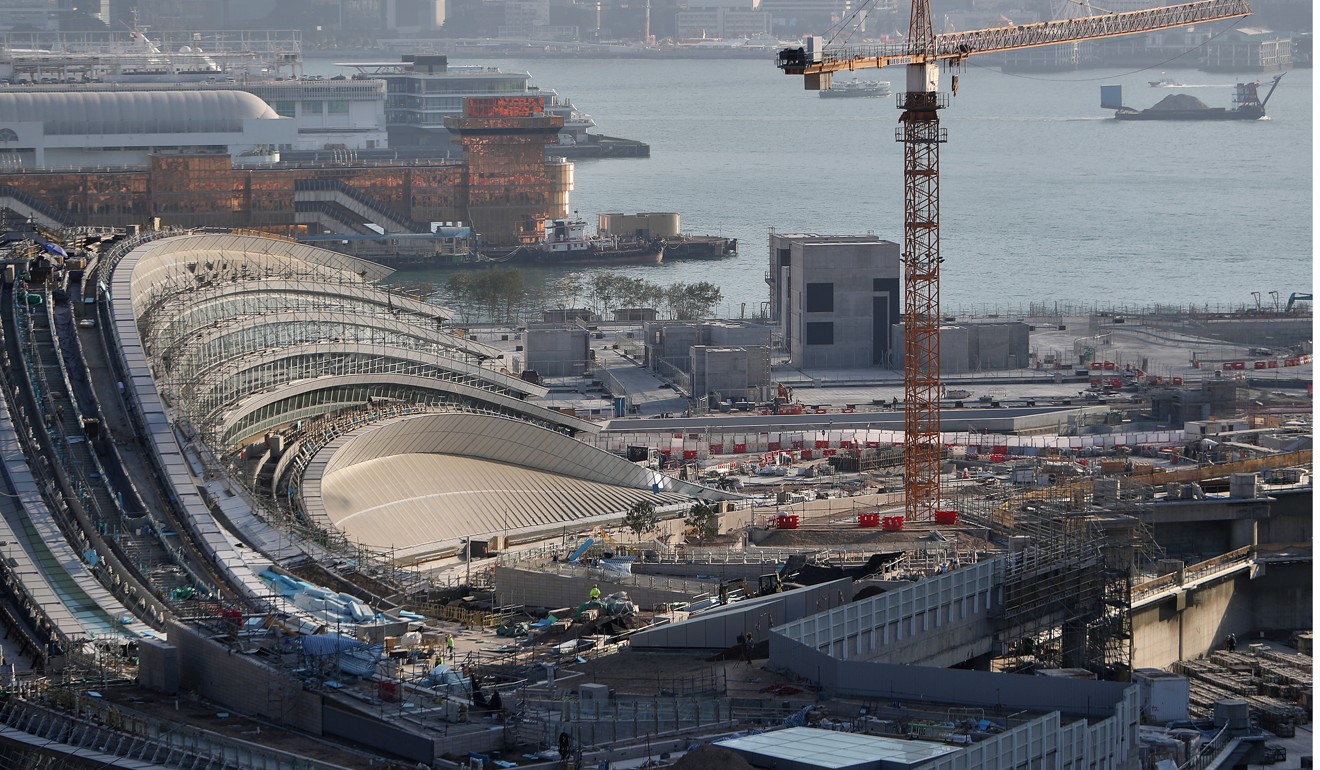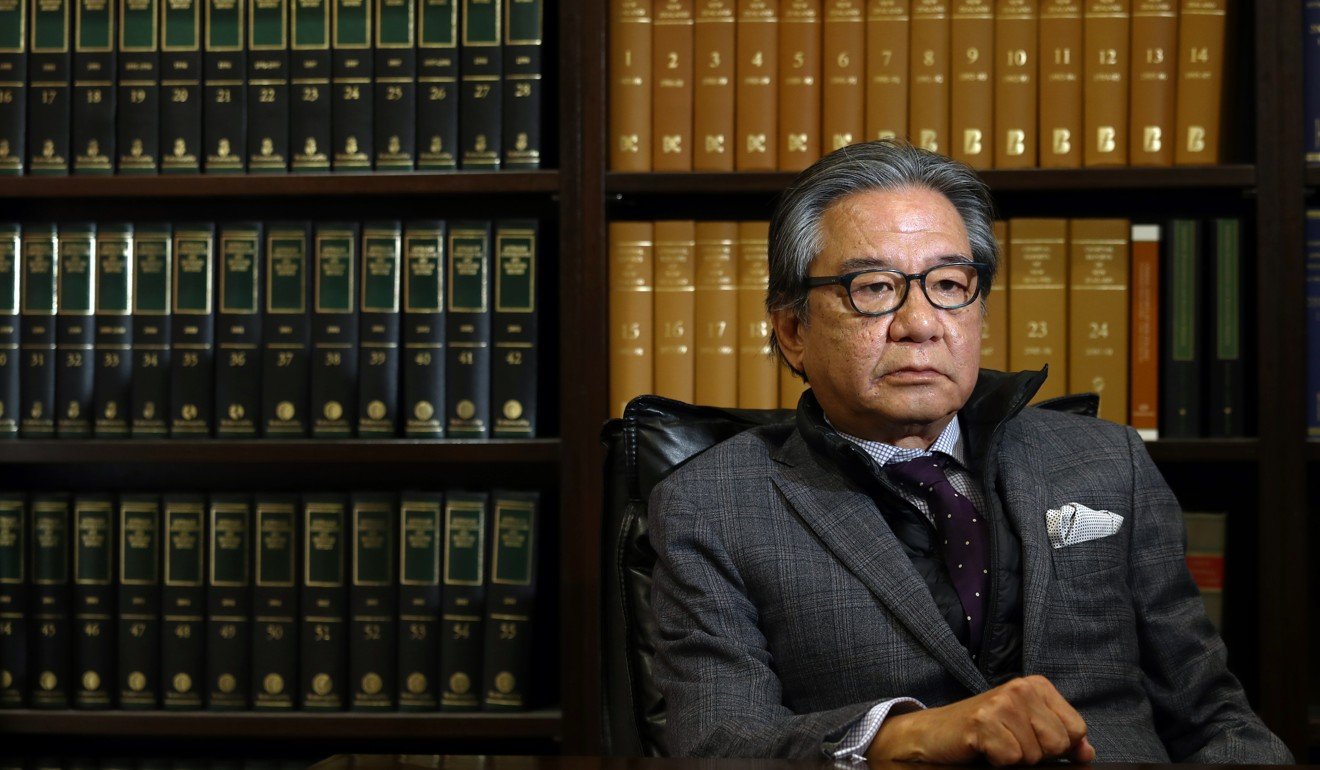
Hong Kong’s rule of law at critical point after prosecution of protesters, top barrister says
Senior Counsel Lawrence Lok Ying-kam explains why he is standing for leadership role at Bar Association and says recent events ‘alarming’
Hong Kong’s rule of law is at a critical juncture following government efforts to prosecute activists under obscure charges to deter others, a top barrister said on Wednesday.
The worrying assessment by Senior Counsel Lawrence Lok Ying-kam was a key factor driving him to run for a leadership position at the Hong Kong Bar Association this month, a professional body he hopes will act as a watchdog to safeguard freedom of speech and assembly in the city, he said.
In a rare and wide-ranging interview with the Post, Lok explained why he had decided to ditch his usual low profile in the legal sector to make his voice heard.
“The city’s rule of law stands at a critical time. I cannot recall anything similar in the past,” Lok said.
The contentious joint checkpoint proposal for the city’s high-speed rail link to mainland China – which would see national laws enforced on Hong Kong soil for the first time – had no legal basis at all, he said.
He also called a lawsuit mounted by the government last year against six elected lawmakers over their improper oaths of office “alarming”. The saga could have been resolved with “less drastic measures”, he said.
But what troubled the criminal law expert the most was what he called the government’s increasing tendency to prosecute protesters with novel charges.

“[Demonstrators] were usually charged with unlawful assembly in the past – but now charges such as rioting, criminal contempt of court – which has not been used previously – and inciting others to incite others to commit public nuisance are also used,” he said. “[The trend] is very obvious.”
The final charge was adopted against the three principal organisers of the Occupy pro-democracy movement in 2014, and there had only been one previous case in Hong Kong, Lok added.
Asked if such practices would deal a blow to freedom of speech and assembly, the barrister said: “Protesters will inevitably feel a certain sense of constraint. It must have a deterrent effect.
“If I am a conventional student or parent, will I encourage my son to participate in protests, or do so myself, when there is a potential sentence of six months hanging over my head? It will deter you from thinking independently.”
Hong Kong’s joint rail checkpoint shows the emperor is not always far away, and never out of mind
Occupy student activist Joshua Wong Chi-fung, who was once represented by Lok, was jailed for six months last year after the government asked for a stiffer sentence for his role in the run-up to the mass sit-ins three years ago. Wong’s appeal is set to be heard by the city’s top court this month.
Lok is on a six-person list of lawyers headed by human rights expert Philip Dykes running against a team led by incumbent Bar Association chairman Paul Lam Ting-kwok for leadership of the Bar Council, the association’s governing body.
Lam has faced criticism for not issuing a detailed response against the joint checkpoint plan until last month when it was officially endorsed by China’s top legislative body.

Lok said he did not hold any “particular views” on Lam himself, but said the association could have flagged its concerns earlier and made constructive comments.
“It might not be possible to turn the tide of the decision handed down by the National People’s Congress Standing Committee, but at least you can see this as an attempt to educate the public,” he said.
The so-called co-location proposal, Lok said, could allow mainland authorities to prosecute people who chant slogans at Hong Kong’s West Kowloon terminal on the charge of “picking quarrels and provoking trouble” – a mainland law which does not exist in the city.
Late chief negotiator for Hong Kong handover would have ‘jumped up and down’ in anger at basis of checkpoint plan
“Think deeper about it – it has the potential to affect almost anyone and everyone,” he said.
Lok, who was called to the Bar in 1979 and appointed a senior counsel in 1994, said it was hard to sum up how the rule of law and legal sector had evolved in Hong Kong over past decades.
But he said: “If we stand firm on our beliefs, upkeep the rule of law, I am optimistic the Bar at least will have many more generations to go.”


